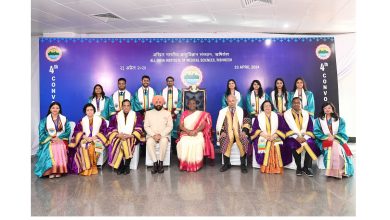India’s first domestically produced HPV vaccine by SII to improve affordability for those most at need: GlobalData

The drug will significantly improve the overall penetration and help address the growing number of cervical cancer cases in the country
Serum Institute of India’s (SII) Cervavac—a quadrivalent human papillomavirus (qHPV) vaccine— is likely to be the first indigenous qHPV vaccine to be approved in India, according to GlobalData. The leading data and analytics company notes that this will not only make the drug more affordable to Indians but will significantly improve the overall penetration and help address the growing number of cervical cancer cases in the country.
qHPV vaccines help protect against cancers caused by HPV such as cervical cancer. According to GlobalData’s Pharmaceutical Intelligence Center, the number of diagnosed prevalent cases of cervical cancer in India is estimated to grow at a compound annual growth rate (CAGR) of 3.11 per cent, from 424,341 in 2021 to 540,435 in 2030.
Neha Myneni, Pharma Analyst, GlobalData, comments: “We are finally in sight of having an India-developed HPV vaccine! This will be a huge relief to the poorer members of our community who cannot afford the high price mark that comes with those offered by foreign manufacturers (approximately Rs 6,000–7,000 for a complete regimen). There are currently only two prophylactic HPV vaccines approved in India, and they are both manufactured abroad: Merck’s Gardasil (qHPV vaccine) and GSK’s Cervarix (bivalent HPV vaccine). Cervavac will be a welcome option.”
GlobalData notes that the National Technical Advisory Group on Immunisation recommended including HPV vaccination under the Universal Immunisation Programme (UIP) to the Union health ministry. Although HPV vaccines were approved for inclusion in India’s UIP in 2017, they were not adopted nationally, mainly due to pricing concerns.
Myneni continues, “Lack of inclusion in UIP means the benefits of these vaccines are not reaching the people in utmost need. This issue will likely be addressed once a domestic player like SII enters the HPV vaccination space. Cervavac is expected to be launched in November 2022.”
One challenge for SII is the lack of awareness among Indian women. Although cervical cancer is the second most frequent among Indian women aged between 15 and 44 years, awareness of this disease is minimal.
GlobalData’s ‘Digital Marketing Intelligence’ identified digital support around HPV vaccination for Indian patients from GSK through a general vaccination support website for children (Myvaccinationhub.in). Key features of this website include a vaccination schedule and v tracker, information on various vaccine-preventable diseases, articles on tips and precautions for vaccination, and awareness initiatives by GSK.
Myneni concludes, “Strategic initiatives from SII in the form of campaigns and support tools would help improve the general awareness of the disease among the target audience and strengthen the company’s market position. Moreover, the Union health ministry’s plans to launch a massive sensitisation programme to educate parents and school authorities about the significance of HPV vaccination are expected to boost SII’s vaccine uptake.”




